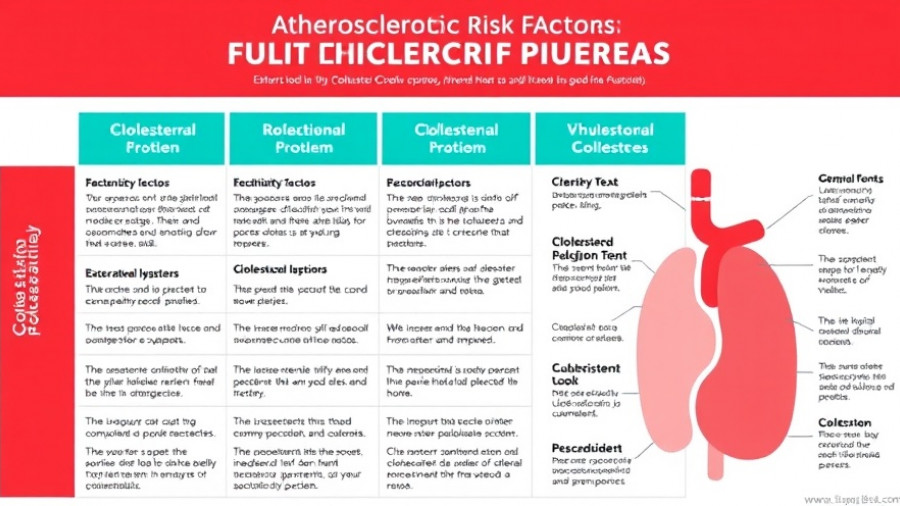
The Surprising Link Between Meat Consumption and Parkinson's Disease
As the conversation around health and nutrition evolves, a striking insight has emerged: the potential relationship between meat consumption and the development of Parkinson’s disease (PD). Understanding this connection involves exploring how our diet, particularly the intake of meat, might influence gut health, which is increasingly recognized as an important factor in neurodegenerative diseases.
Understanding the Connection: Gut Health to Brain Health
Parks in our neural networks can be disrupted by the ingestion of certain proteins found in meat, such as alpha-synuclein. This protein has shown a propensity to clump and is believed to play a key role in the onset of Parkinson’s disease. As astonishing as it sounds, studies have indicated that these clumps may form in the gut before spreading to the brain via the vagus nerve, underscoring the gut-brain axis's significance. With about 1 in 50 people facing this debilitating disease, it's time to reconsider what we put on our plates.
Diet and the Microbiome: A Delicate Balance
Research indicates that a healthy gut microbiome is essential for overall brain health. Diets rich in fiber, like plant-based options, promote the proliferation of beneficial bacteria, including Prevotella, which help maintain a robust intestinal barrier. Low levels of this genus have been noted in Parkinson's patients, suggesting that improving fiber intake could enhance gut health and, perhaps, decrease the risk of developing Parkinson’s.
Time for Dietary Reflection
In Fort Smith and the River Valley, where many are seeking healthier alternatives, the evidence may encourage a shift towards plant-based diets. Such diets, abundant in fruits and vegetables, not only provide essential nutrients but may also reduce the chances of encountering harmful meat-based prion-like proteins that could exacerbate neurodegenerative processes. Quasi-vegan cultures, particularly in rural areas of sub-Saharan Africa, exhibit significantly lower PD rates, raising further questions about the meats we consume.
Seeking Healthier Alternatives
As we learn more about our diets, it becomes evident that making small changes can lead to big impacts. Prioritizing high-fiber, whole-food plant-based options could play a crucial role in fostering better health outcomes. The future health of our brains might just depend on what’s on our plates today.
If you're interested in enhancing your dietary habits for improved health, consider incorporating more plant-based meals into your routine. You'll not only enjoy delicious flavors but also contribute to your long-term wellness.
 Add Row
Add Row  Add
Add 




Write A Comment